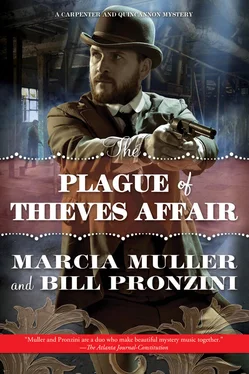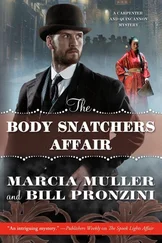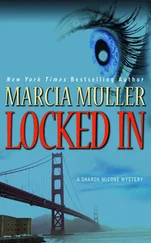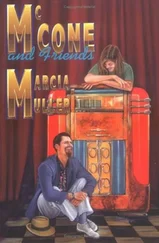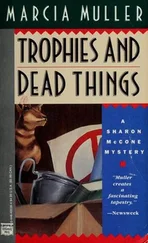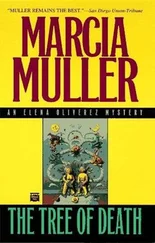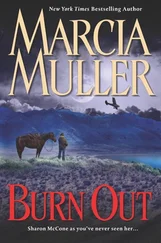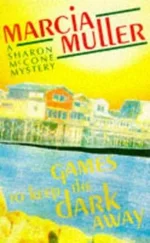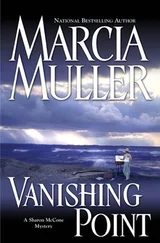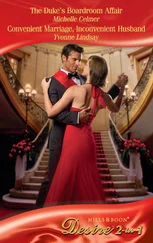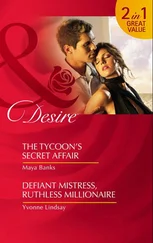“None.”
“To my presence in San Francisco? You did tell him I am staying here at the Baldwin Hotel?”
“Yes, but he didn’t respond to that, either.”
“Did you try to talk him into contacting me?”
Time to pay the piper.
“I didn’t have time,” Sabina said. “He fled before I could say or ask anything more.”
“Fled? For what reason?”
“I’m afraid it’s my fault.”
A nose twitch showed Fairchild’s displeasure. “Are you saying you acted inappropriately, frightened him away?”
“Somewhat rashly, yes. The circumstances were such that—”
“Hang the circumstances. Why didn’t you stop him?”
“How should I have done that, Mr. Fairchild? By force?”
The bedroom door opened abruptly and out came Octavia Fairchild, dark visaged, like a cloud that robbed the room of some of its light. “A proper male detective would have stopped him by whatever means necessary. I told you, Roland, that hiring a woman was a foolish decision.”
Fairchild aimed a narrow-eyed glance at his wife. “Eavesdropping is childish behavior, Octavia. Why didn’t you simply step out here and join us? Why were you lurking in the bedroom in the first place?”
“I neither like nor approve of your Mrs. Carpenter. She was quite rude to me before you came. Rude, and quite obviously incompetent. If you ask me, she should be discharged immediately and replaced by a capable male investigator as I suggested in the first place.”
“I haven’t asked you. Please keep still and permit me to determine what’s best.”
Octavia Fairchild snapped her mouth shut and stood stiffly, arms akimbo, directing dour looks at both her husband and Sabina.
“Mrs. Carpenter,” Fairchild said, “do you consider it likely my cousin will remain in San Francisco?”
“It’s difficult to say for sure. For the time being, perhaps he will. He has what he considers, or rather his Sherlock Holmes persona considers, to be pressing business here.”
“What sort of pressing business?”
Sabina had no intention of sharing this information with the Fairchilds. “He didn’t take me into his confidence.”
“Is it possible he’ll contact you again of his own volition?”
“As unpredictable as I’ve found him to be, yes, it is. He might also decide to contact you in spite of his actions last evening, though that seems doubtful.”
“And if he doesn’t do either? What are your chances of locating him again?”
Unable to keep still, Octavia Fairchild said, “Slim and none, I should say. I still think you should discharge her.”
“In favor of a male investigator who has had no dealings with Charles in San Francisco, doesn’t know him at all?” Fairchild said this without looking at his wife.
“What about her partner, Mr. John Quincannon? Surely he is more competent than she.”
Sabina said, “My partner is involved in another case that commands his full attention. Even if he were free, there is nothing he could do that I can’t or haven’t already.”
“So you claim.”
“That’s enough, Octavia,” Fairchild said sharply. Then to Sabina, “Well? What are the chances of communicating with Charles again?”
“I can’t answer that. All I can tell you is that if you wish me to continue, I will do everything in my power to bring you and your cousin together.” John wouldn’t like what she was about to say next, but there was no need for him to know about it. She must do what she felt was right and proper. “If I fail, I will not only waive the remainder of our agreed-upon fee, but refund your retainer.”
Octavia Fairchild emitted an unladylike snort. Her husband ignored her. Nose twitching again, he said, “Very well, Mrs. Carpenter. You have three days. If Charles has not contacted me in that time, with or without your assistance, I will consider our arrangement terminated, hold you to your promise regarding financial matters, and seek other options.”
“Very well,” Sabina said.
Fairchild showed her to the door. All the way across the room, she could feel Octavia Fairchild’s hostile gaze like a dagger between her shoulder blades.
Elias Corby might have vanished into thin air, for all the success Quincannon had in attempting to find him after the embarrassing incident at the cooperage. He spent several hours interviewing coworkers and neighbors of Corby’s, none of whom knew the man well. If the murderous crook had any close friends, male or female, or any vices such as gambling or the services of prostitutes, he’d spoken of them to no one. A closemouthed loner, from all indications.
Had he fetched his stash of money and fled the city for parts unknown? This thought gave vent to another, belated one and led Quincannon once more to Caleb Lansing’s rooms. The strongbox was no longer secreted under the loose floorboard; it lay open and empty on the dining table. Damnation! Corby, of course. The none too bright Lansing must have let the location of the hiding place slip at some point in their dealings. And now the fugitive was in possession not only of his own loot but Lansing’s as well — enough cash to take him a long way from San Francisco.
On the slim chance that Corby might still be holed up in the city, Quincannon put out the word among his informants and information sellers — men such as Luther James, Breezy Ned, and Ezra Bluefield. Bluefield, the former owner of a Barbary Coast deadfall called the Scarlet Lady, was a particularly reliable source of information; he owed Quincannon two debts of gratitude, one for having saved his life when a rival saloon owner attempted to puncture his hide with a bullet, the other for assisting him in his aim to become a respectable citizen by selling the deadfall and using the proceeds to purchase an Uptown Tenderloin saloon and restaurant, the Redemption, where he now held sway. But he still had his finger on the pulse of the Coast, and knew or could often find out the whereabouts of wanted lawbreakers.
No such luck in Corby’s case. When no word came from Bluefield or any of his other informants by Saturday morning, Quincannon, whose patience was already worn celluloid thin, decided the time had come to take another criminal bull by the horns, wrestle him a bit, and see what could be found out from him.
Xavier Jones, for one. Cyrus Drinkwater, for another.
Jones was his first choice, so he set out mid-morning for the West Star Brewing Company. Yesterday’s rain had gone and the sky was mostly clear, the February sunlight pale, the wind modulated into a cool breeze. A day made for much more pleasant activities than chasing after thieves, a fact which sharpened his determination.
West Star Brewing was situated on Jackson Street near the site of the old Adam Schuppert Brewery, California’s first such enterprise established during the 1849 Gold Rush. The building was smaller than Golden State’s and, according to James Willard, produced an inferior brand of lager. But Quincannon’s visit there proved to be wasted effort; Saturday, he was told, was not one of Xavier Jones’s workdays.
He had obtained the brewmaster’s residence, on Sacramento Street near Lafayette Park, from the city directory. But a trolley car ride there did him no good. Jones was not at home, or at least not answering his bell, and the large and well-populated building’s security was such that surreptitious entry for a search of Jones’s apartment would have been difficult.
Quincannon settled instead for contacting a handful of Jones’s neighbors. One confided that the brewmaster’s favorite idle-hour pastime was playing cribbage and that he frequented an establishment on Polk Street called the Elite Cardroom and Pool Emporium. He found his way there, only to learn that the place’s elegant name was a misnomer — it was just another run-of-the-mill neighborhood gaming parlor — and that Jones was neither present nor had been there that day.
Читать дальше
